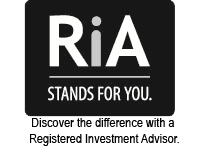With Roth-401(k)s increasingly offered alongside the traditional 401(k), high-income earners need a framework for deciding whether to take advantage and if so, how?
Understanding the Roth-401(k) and the Implications for High-Earners as They Save for Retirement
As financial advisors, we generally work with clients to manage down their current tax burden. This is particularly true for high earners who often find themselves in higher marginal tax brackets and benefit now from any opportunity to defer income into the future. In doing so, we keep and invest more of what we make today with the hope of generating greater returns to fund our eventual retirement. But does this approach always make sense? Are there advantages to altering this pre-tax savings approach by instead making after-tax Roth-401(k) contributions? Read on and find out.
Traditional Retirement Plans: 401k and 403b
Most of us are likely familiar with the 401(k) (private sector) employer-sponsored retirement plan and its counterpart for public employees, the 403(b). Introduced in the late 1970s and quickly adopted by many companies, the 401(k) allows employees to defer income on a pretax basis to save for their future retirement. Funds within these accounts grow tax-deferred until withdrawn for their intended use: funding your retirement. Contributions to the traditional 401(k) can be automatic and are often matched by your employer.
For high-income earners, this is an easy and effective way to save for retirement. It helps reduce your current year’s tax bill. In 2022, the IRS permits an employee to put away up to $20,500 ($27,000 for those over 50) into qualified retirement plans like the 401(k). If you are a married couple filing jointly (both age 50) with a combined income of $200,000, you could reduce your taxable income to $146,000 (assuming you both max out your contributions). The tax implications? In 2022, you would move from a 24% marginal rate to 22% and reduce your tax bill by $12,317. All in addition to the tax-deferred savings benefit you’ve gained by making those elective deferrals into your 401(k). Nice work!
But hold on. This article is not about the wonderfulness that is the traditional 401(k). We’re here to talk about its counterpart, the after-tax Roth-401(k). Why would a financial advisor, held to a fiduciary standard, ever suggest replacing the 401(k) deferral with a Roth Account contribution? Keep reading.
The Roth Account: Roth-401(k)/Roth-403b
In 2020, the share of traditional 401(k) plans offering a Roth savings alternative had grown to 86% and continues to increase. While several significant differences exist, one of the more apparent is when you’ll pay income taxes on your funds. Where the traditional 401(k) provides an upfront tax benefit (reduction in taxable income), a Roth-401(k) contribution is taxed upfront. From then on, the Roth Account grows tax-deferred, and assuming certain requirements are met, allows for tax-exempt withdrawals. Again, that’s zero taxation while the funds in your Roth-401(k) increase in value and zero taxes due assuming qualified withdrawals (5 years of account existence and over age 59 ½).
That is a compelling benefit, and yet, these accounts offer more to consider.
Considerations for the Roth-401(k) for High Earners
Back to our high-income earners from the example above ($200,000 of income, married filing jointly). Let us now assume that instead of making a pre-tax 401(k) contribution, they opt to pay taxes on those earnings now. They also contribute their combined $54,000 to the after-tax Roth-401(k). Their cost to do so is the $12,317 in income taxes that they avoided with the traditional 401(k) contribution. We’ll need to account for these taxes paid (with the Roth-401k contribution) to properly compare the two options. We will do that by using a hypothetical Roth-401(k) balance offset by the income taxes incurred; $41,683 (i.e, $54,000 minus $12,317).
Let’s make some additional assumptions to complete our comparison. We’ll assume this couple will start accessing these funds in 20 years. They will average a 6.5% compound rate of return over that period. For simplicity, we will also assume that their marginal tax rate will be the same in the year of withdrawal as the year of contribution (i.e., 24%).
Given these assumptions, their after-tax balances will be:
After-Tax Balance:
Roth-401(k) → $146,876 (adjusted for income taxes paid in the year of contribution)
401(k) → $144,610
This illustrates the potential benefit that the after-tax Roth-401(k) offers. In this case, these savers come out ahead on an after-tax comparison basis. Please keep in mind though, that each situation is unique. Time, tax rates, and rates of return can quickly change these expected outcomes.
So, what are the other important considerations for high-income earners evaluating the merits of a Roth-401(k):
Time
The longer your funds stay invested in the Roth Account the longer they have to recover the income taxes paid to make the original contribution. Generally, the closer a high-income earner is to retirement, the less compelling the case for making a Roth-401(k) contribution. However, additional advantages need to be considered.
Income Flexibility
Diversity of income in retirement can provide flexibility to your income strategy. It is important to have ‘taxed’, ‘tax deferred’, and ‘tax exempt’ income sources in retirement. This is particularly true for high earners. Having tax-exempt funds can help reduce total income taxes paid, including those on your Social Security benefit, as well as the premiums you will pay for your Medicare Part B coverages.
Legacy Planning
Roth-401(k) funds are easily rolled into a Roth-IRA gaining exemption from the Required Minimum Distributions (RMDs) that the IRS requires we take starting at age 72. Without RMDs, Roth-IRA accounts can continue to grow in value, making them great assets to pass along to the next generation.
Tax Policy
Our federal government (and most states) are hungry for tax revenue. Simply put, our marginal tax rates have nowhere to go but up. It may be beneficial to pay income tax today at what will likely be a lower rate relative to the future (assuming similar income levels).
If you’re a high-income earner, it is tempting to reduce your taxable income today by contributing to your company’s 401(k) or 403(b). However, it would be wise to at least consider the benefits offered by Roth Accounts before making a final decision. The implications for your wealth, flexibility, tax efficiency, and overall retirement well-being make it well worth the effort. Contact us today for more information.








